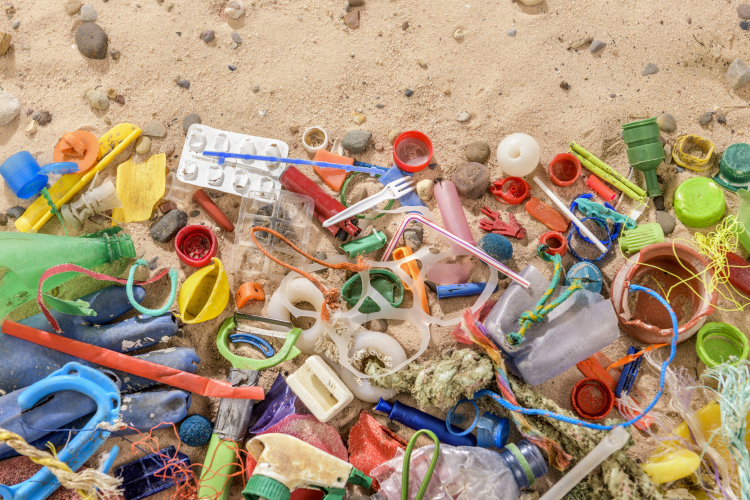
Four high production volume polymers applied in plastic were identified and quantified for the first time in blood, according to research published in journal Environment International.
The study analysed blood samples from 22 healthy individuals and discovered 17 – or 80% – had plastic particles in their blood stream, including PET plastic which is used in drinks bottles. The study also found plastics from packaged food and plastic bags.
The scientists, from Vrije Universiteit Amsterdam in the Netherlands, detected the presence of polyethylene terephthalate, polyethylene and polymers of styrene (a sum parameter of polystyrene, expanded polystyrene, acetonitrile butadiene styrene etc.) in blood samples taken from the general public. These were the ‘most widely encountered’ plastics, followed by poly(methyl methylacrylate).
“This pioneering human biomonitoring study demonstrated that plastic particles are bioavailable for uptake into the human bloodstream. An understanding of the exposure of these substances in humans and the associated hazard of such exposure is needed to determine whether or not plastic particle exposure is a public health risk,” the researchers wrote.
An ‘urgent’ need to tackle microplastics
Responding to the findings, water purification company Bluewater said that it shows the ‘urgent need’ to ‘double down on tackling micro-plastic pollution’.
“The presence of polymer particles in our blood underlines the urgent need to accelerate efforts to halt the spread of micro-plastics and the resulting exposure to the chemicals in them,” said Bluewater founder and CEO Bengt Rittri.
“We know that micro-plastics are in the food we eat, the air we breathe, and the water we drink, yet the evidence the particles and the chemicals they contain are in our blood is frankly shocking,” added Rittri.
Bluewater has waged a campaign against single-use plastic bottles since its founding in 2013. A Swedish environmental entrepreneur, Rittri has worked on the development of a zero plastic bottle business model that enables events, festivals, and other public dispensing operations to harness a ‘planet-friendly hydration ecosphere’ combining Bluewater’s water purification solutions with the firm’s sustainable water bottles.
In a white paper entitled ‘The Global Plastic Calamity’ published four years ago, Bluewater dubbed the endocrine disrupting chemicals found in micro plastic particles as the ‘Number 1 threat to humankind’ for the way they impact human hormone function. The potential consequences include abnormal development and illnesses ranging from stunted fertility and male/female sex malformations to obesity, diabetes, cancer, and heart attacks.
Source
Discovery and quantification of plastic particle pollution in human blood
Environment International
DOI: https://doi.org/10.1016/j.envint.2022.107199
Authors: Heather A.LeslieaMartinJ. M. van VelzenaSicco H.BrandsmaaDickVethaakabJuan J.Garcia-VallejocMarja H.Lamoree